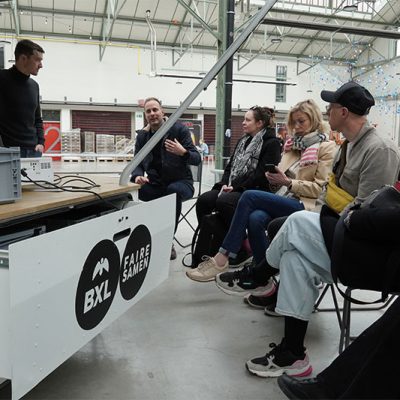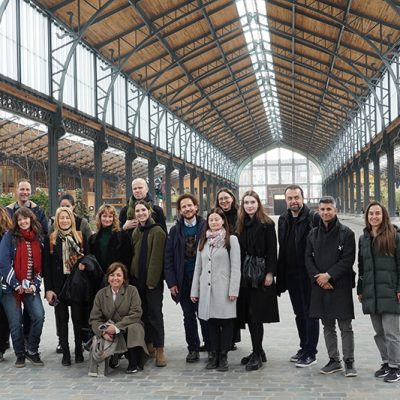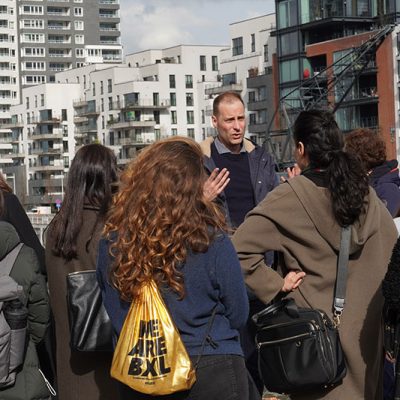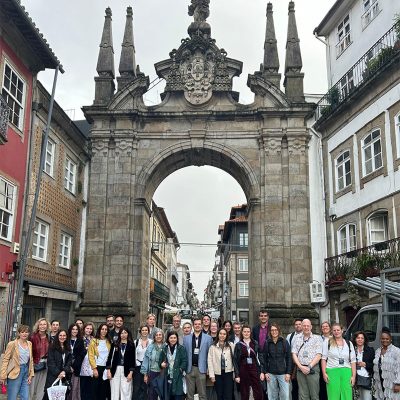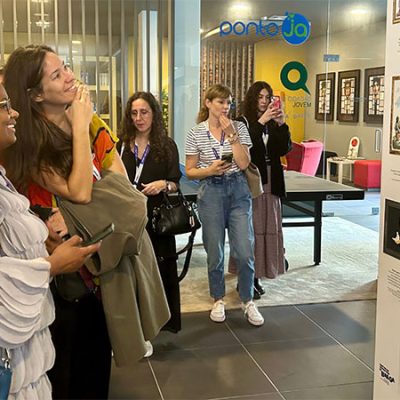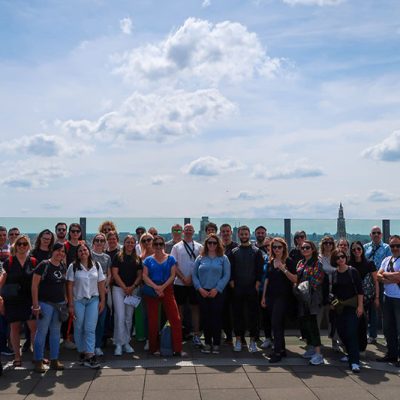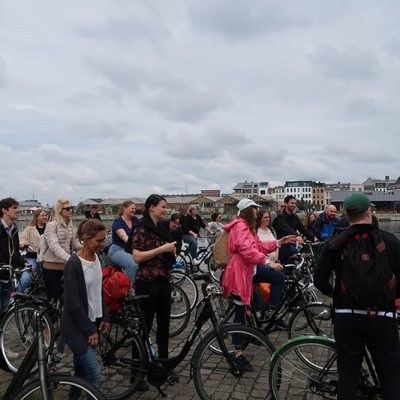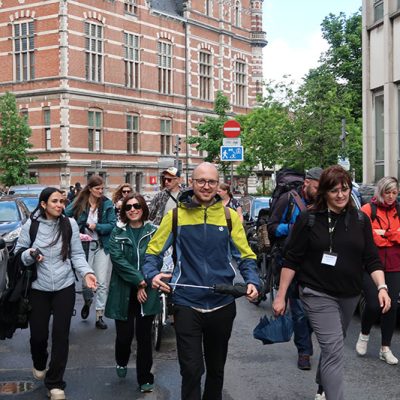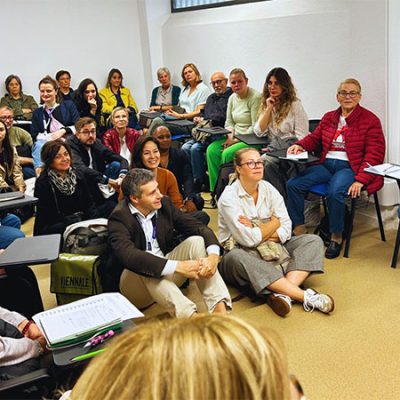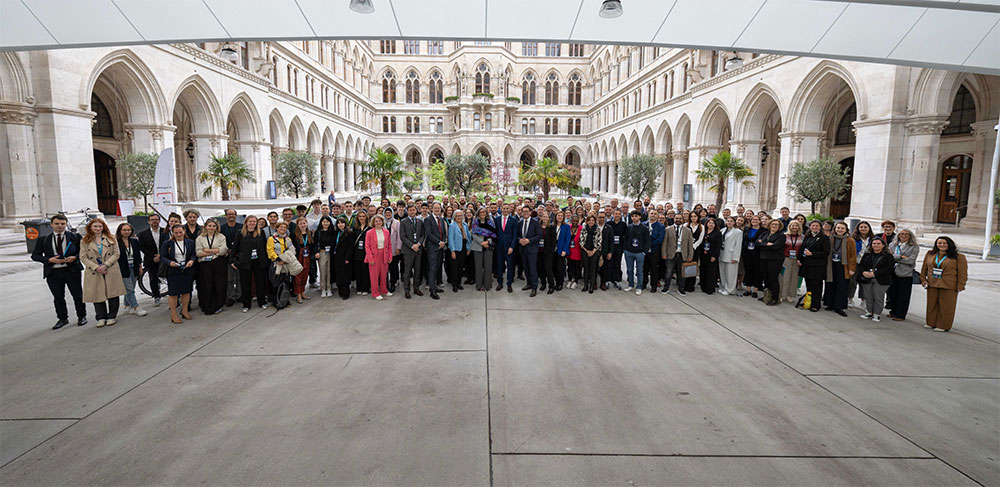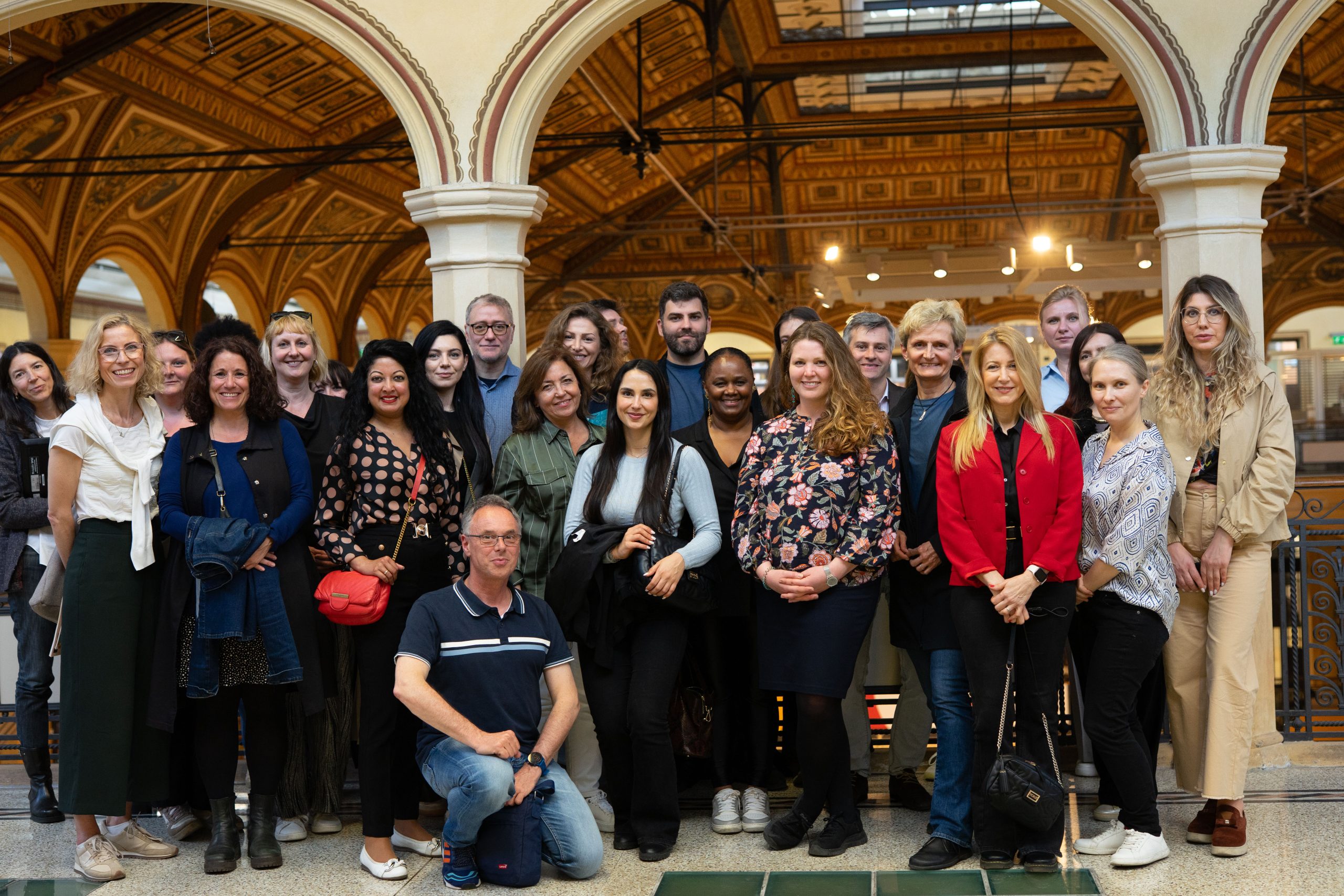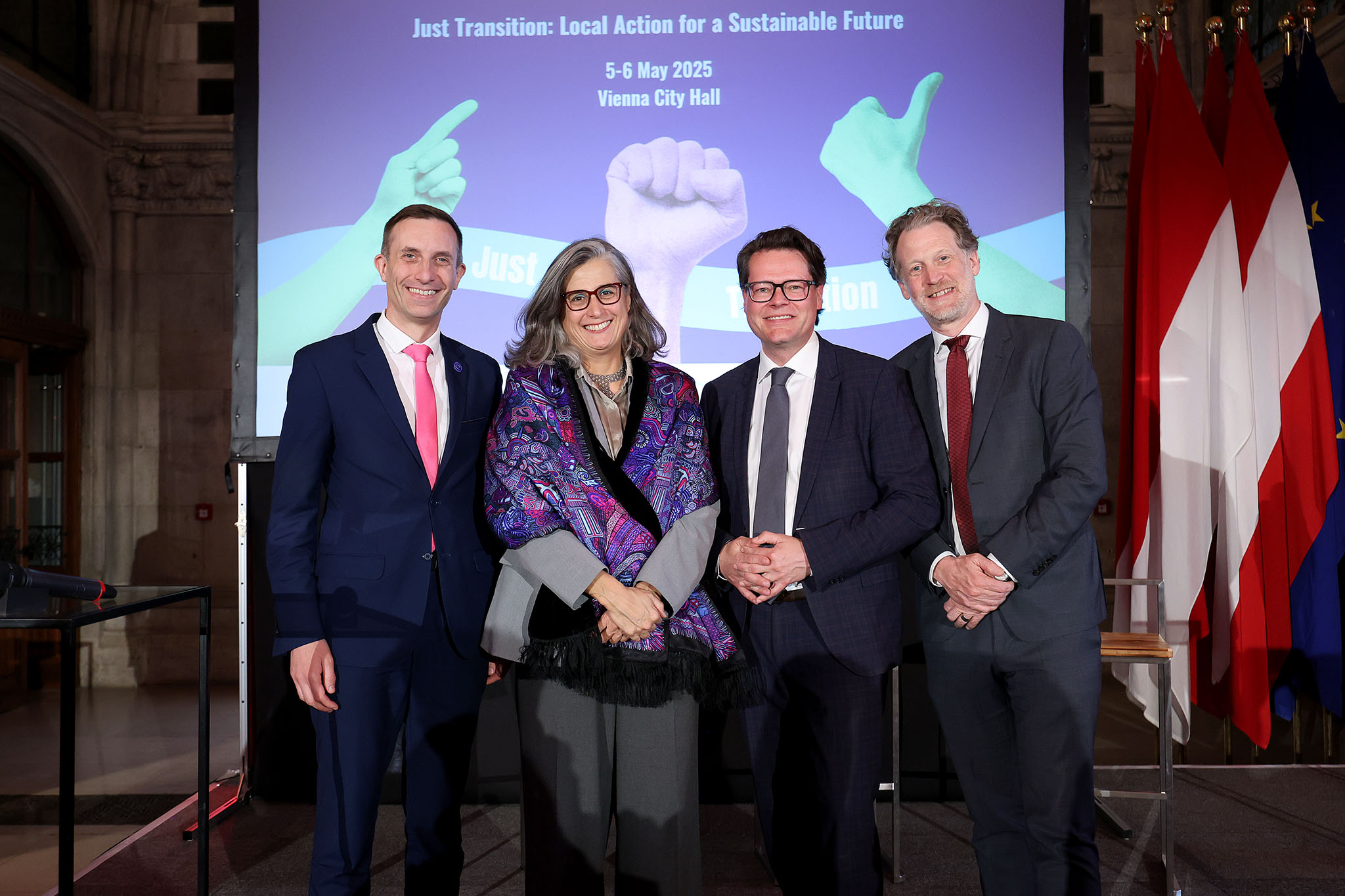European City Network

The European City Network (ECN) is a strong group of cities who foster participation and champion democracy across Europe. This Network gives cities a platform to showcase how they are changing our world for the better.
Supported by a CERV Network of Towns “European City Network” grant, member cities host regular in-person network meetings, as well as online workshops, where representatives come together to share their expertise and best practices in democracy promotion at the municipal level. Read more about the European City Network here.

Who is part of the European City Network?
The City Network is an exclusive group of dedicated cities that are frontrunners in democracy promotion. All participating cities successfully submitted applications for the ECoD Call. Cities nominate representatives from departments dealing with questions of democracy and civic participation who actively participate in all activities.
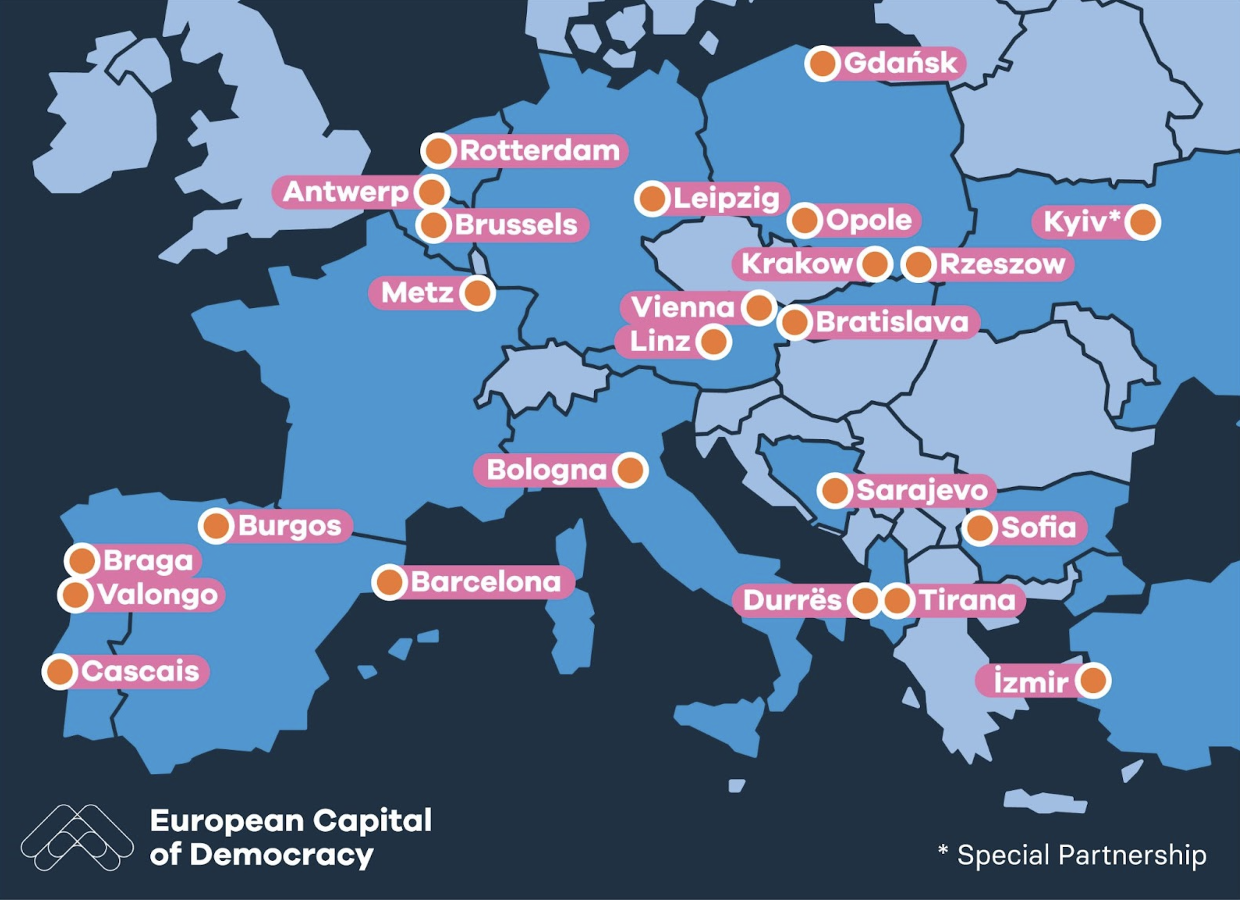
Together our City Network members benefit from
Collaboration
Network members host regular in-person meetings, as well as online workshops, which foster and strengthen pan-European collaboration.
Training
Knowledge sharing, peer learning and capacity building enables our members to gather new skills and provides opportunities for professional development.
Access
International expertise for mutual exchange of knowledge and experience, as well as ECoD Programme Year events to showcase their work.
Exchange
Sharing best practices creates a supportive environment which inspires the development of impactful interventions in their communities.
Participation
Contribute and be a part of the Programme Year in the title-holding ECoD City, as well as the online and in-person City Network meetings.
Join our Network
Becoming a part of the European City Network is a unique opportunity for cities within the Council of Europe Member States and Kosovo to exchange best practices and learn from each other. All cities who successfully submit an application for the European Capital of Democracy can join the network.
The next network meeting will be held in;
Vienna, Austria
16-18 September 2025
Around the Innovation in Politics Awards Exchange Conference & Gala
Meet our European City Network Members
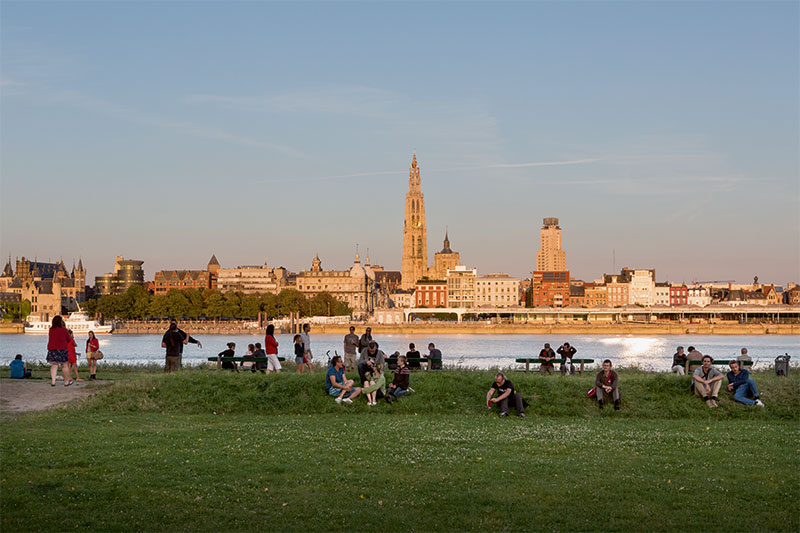
→ Country: Belgium
→ Population: 506,922 (2015)
Take Over
Bottom-up participation allows young people to enter into a dialogue with policy makers. The programme is structured to help the young people to grow throughout the process, with methods adapted along the way to suit the needs of the participants. A preparatory process supports them as they learn how to formulate, discuss and test their ideas and opinions. Throughout the process, young people learn how to distinguish between facts and opinions, developing their civic awareness and media literacy. Participation projects like this only work if young people are co-owners of the process. Young people participate and co-organise, with an open and widely distributed call for participants on social media via youth centres, schools and individual young people.
https://oor.antwerpen.be/take-over
OOR 3.0
OOR 3.0 is a new low-threshold, future-proof platform for digital participation on which the citizens of Antwerp can give their opinion about the city’s projects. In 2012, the municipal youth service developed OOR, the city’s first digital participation instrument to be able to ask children, teenagers and young people their opinions. After ten years of intensive use, OOR has had a complete makeover. The urban youth service has built up expertise on how to make citizen surveys for public participation projects very accessible, so that children and young people can also express their opinion in an inclusive way. This expertise formed the basis for the upgrade of the old platform.
ComPas: Competence Passport
Compas is a certificate youngsters can achieve after they have developed competencies and learned to name their soft skills during a programme undertaken in their spare time. They learn how to work together, communicate, cope with feedback, persevere and to take responsibility for themselves. The certificate is awarded by Antwerp City Council and the Flemish Employment Service. With ComPas, young people gain greater self awareness, making them stronger candidates in their first steps into the labour market, which results in a sense of empowerment. In addition, the programme can help them to choose what to study, which jobs they are interested in or how they want to participate in society.
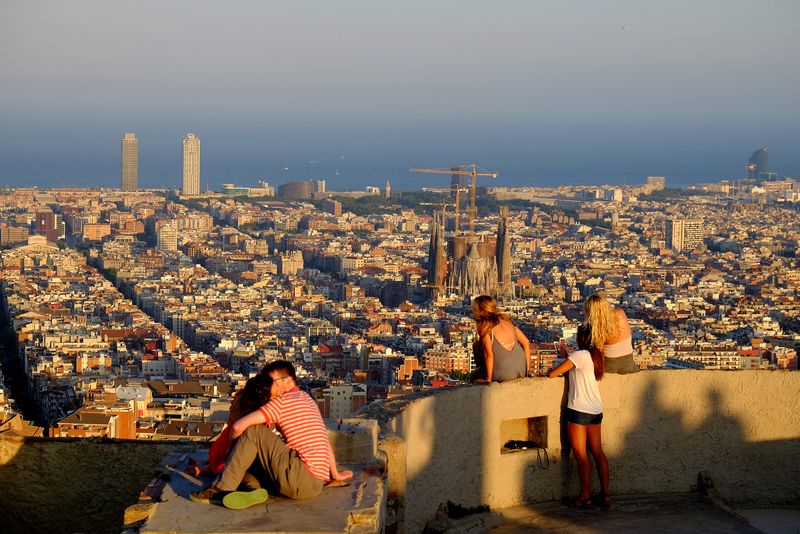
Autor: Lamberto Ramon Torre Galería: Vistas de Barcelona Fecha de captura: 12/06/2017
→ Country: Spain
→ Population: 1.62 million (2018)
Decidim.barcelona
Decidim is a free digital platform that enables organisations and institutions to initiate participatory processes, like consultations. This open-source software is available for anyone to view, copy, change or share the code, as long as they maintain the same licence. Decidim.barcelona was launched in 2016, since then Decidim has been adopted by hundreds of other public administrations and social organisations, and has been translated into more than 50 languages around the world. Today, Decidim.barcelona has 150,000 registered participants and 28,200 citizen proposals, more than half of which have been accepted). For Barcelona, Decidim is an innovative tool for individual and organisational participation. It has deepened and enriched the democratic process, with a commitment to technological autonomy, free software, open knowledge and the defence of citizens’ digital rights.
Superblock: Eixample
The Barcelona Superblock project aims to bring about changes in the design and use of public spaces that will bring us closer to a more sustainable and resilient city, while also working with existing resistance to the changes in habits that this new urban model implies. Eixample’s Superblock project is notable for the diversity of perspectives that it took into account, considering gender and age as well as people requiring accessible spaces and local shops. This participatory project also combines the best digital tools and face-to-face activities: working sessions, presentations, group discussions and debates, as well as exploratory walks with neighbours and workshops in schools. This wide range of participation tools was essential to the design of Superblocks in general, making Superblock: Eixample particularly innovative. The digital platform decidim.barcelona was used to manage and document the process.
https://ajuntament.barcelona.cat/superilles/ca/#; https://www.decidim.barcelona/processes/SuperillaBarcelona?participatory_process_slug=SuperillaBarcelona
Barcelona Youth Forum
The Barcelona Youth Forum is a deliberative process in which 99 young people between 16 and 29 years of age, selected through civic lottery, collaboratively address the situation of youth in the city and reach a consensus on public-policy proposals to present to the municipal government. Participants were organised into working groups and chose the topics that were most important to them: mental health, education and emancipation. The groups invited experts to participate and generated proposals, with recommendations, on each topic. The groups chose 22 proposals to present to Barcelona’s City Council for evaluation. Finally, the Mayor and Councillors committed to implementing 20 of their 22 recommendations. This best practice method of drawing lots, payment for participation and the deliberative methodology, represents a true innovation in the active involvement of citizens in Barcelona.
https://www.decidim.barcelona/processes/forumjoveBCN?locale=ca
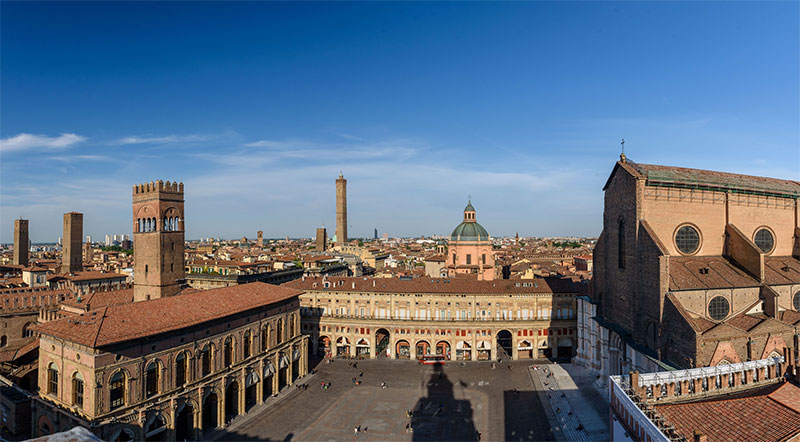
→ Country: Italy
→ Population: 388,367 (2017)
→ https://www.comune.bologna.it
Climate City Assembly
The Climate City Assembly is a democratic participation tool, which aims to directly involve city residents in the design of climate-related local policies. The Assembly is composed of 80 residents (randomly selected from a representative sample of the local population), 10 non-resident University Students and 10 residents from the wider metropolitan area who work in the city. Assembly participants receive a small token payment to ensure that economic status isn’t a barrier to participation. The Assembly has the mission to work for four months to produce policy and regulation proposals and recommendations to make Bologna more renewable and sustainable, accelerating a fair and just green transition.
https://www.comune.bologna.it/partecipa/percorsi/assemblea-cittadina-per-il-clima
Diversity Team
The Municipality of Bologna has appointed a team of five Diversity Managers with competences in the fields of law, economics, training and education, and human resources, who are experienced activists in the promotion of human rights and diversity in five fields: origin, disability, gender and gender identity, age, and sexual orientation. The team will support the Rights and Plural City office, as well as the wider municipality and administration, to improve diversity management and access for people at risk of marginalisation, and to foster the representation of under-represented groups within the local administration.
https://www.comune.bologna.it/notizie/diversity-team-nomina
LGBTQIA+ General Cooperation Pact
The Municipality of Bologna has signed a Cooperation Pact with 27 local associations and groups representing LGBTQIA+ communities. The Pact was signed for the first time in 2018 and renewed for the 2021-2026 period. This Pact engages all departments of the local administration in cooperating with the signatory civil-society partners on 104 different projects aimed at promoting the rights of LGBTQIA+ people and fighting against homotransphobia. The projects span very diverse areas, from providing services, to training and education, to culture and leisure.
https://www.comune.bologna.it/notizie/nuovo-patto-collaborazione-lgbtqia-2022
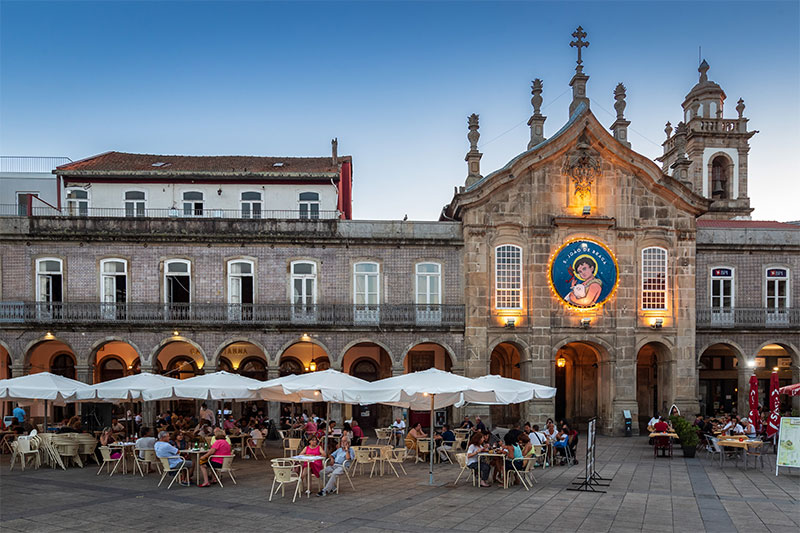
→ Country: Portugal
→ Population: 193,333 (2021)
Municipal Youth Council
Braga’s Municipal Youth Council advises the Municipal Council on topics important to youth. Its goal is to align the needs of young people with the city’s priorities. To elevate youth issues, the Youth Council directly participates in, and contributes to, the political process. Braga has opened its political process to the opinions and needs of its young people. Braga’s Municipal Youth Council promotes an environment of dialogue. It ensures that the voices of young people are heard, and that their needs are reflected in municipal decisions.
Senior Academy
The Braga Senior Academy is an educational and cultural project, promoted and managed by the City of Braga. It is open to all people aged 55 or over. The Academy hosts classes, courses and events which aim to support community connections, lifelong learning and healthy ageing. Braga’s Senior Academy is contributing to the inclusion and participation of seniors in Braga’s local democracy. It also improves seniors’ quality of life by expanding their knowledge and promoting a healthy spirit of networking and community.
Participatory Budgeting
Participatory Budgeting has successfully inspired more citizens to be active in the civic and political life of Braga. Together with the Municipal Youth Council, Braga has successfully run three public participative budgets for schools, the general population and young people. Participatory Budgeting makes the budgeting process more transparent and connects it to community networks. By inviting people into the political process, the City of Braga also contributes to the community spirit.
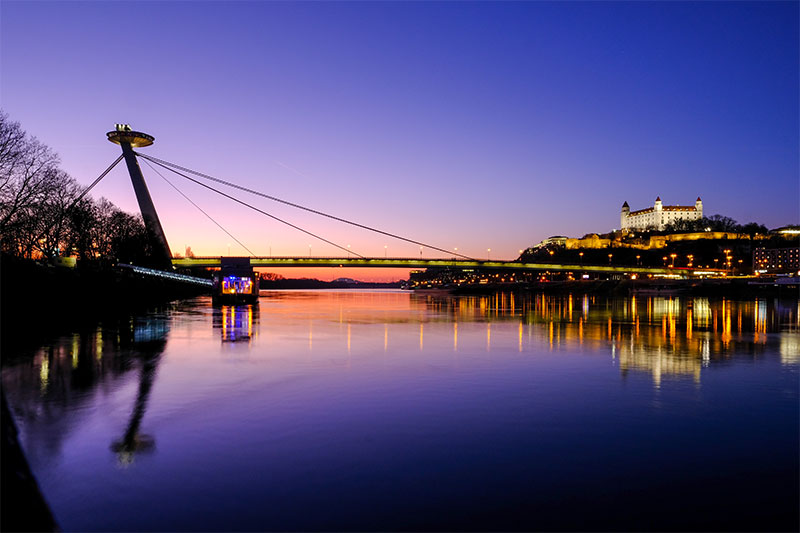
→ Country: Slovakia
→ Population: 476,922 (2022)
Bratislava City Foundation
The Bratislava City Foundation, established in 2020, is a pivotal force behind grants that bolster citizen initiatives. Beyond supporting civic groups and NGOs, it also helps individual community leaders by setting an innovative and transparent model. This pioneering approach, guided by Slovak law, serves as an inspiring precedent for other municipalities. Adhering to the “arm’s length” principle, autonomous experts assess project quality. The foundation’s focus spans culture, community life, and Bratislava’s holistic advancement. In 2022, they initiated a special proposal round addressing refugee challenges. Through active resource allocation, the foundation significantly fosters inclusivity, integration, and social unity in the city. https://bratislava.sk/en/culture-and-communities/cultural-services/bratislava-city-foundation
City for Children
City for Children prioritises children’s urban well-being via participatory planning in Bratislava. This visionary project unites stakeholders to foster a child-friendly environment. The initiative challenges the norm that excludes school children from decision-making. By actively involving them in matters that affect their well-being, such as safety and access to public spaces, children are empowered to express their needs and opinions. Play Streets have been a remarkable outcome, transforming car-centric spaces into inclusive, safe, and democratic public areas. Additionally, the initiative aims to host a global conference for officials to exchange ideas, address common issues, and learn from experts.
Climathon Bratislava: Addressing Climate Change Through Innovative Solutions
Climathon Bratislava significantly addresses climate change threats by engaging diverse stakeholders – city officials, experts, private partners, and individuals – in collaborative problem-solving. This event spurs innovative solutions for climate-impact mitigation, raising awareness, education, and action. It catalyses positive changes for a sustainable, climate-resilient future in Bratislava and beyond. In a 48-hour event, participants design and validate solutions to challenges defined by the City, some of which evolve into the Mobility as a Service app. Climathon Bratislava assembles mentors, experts, leaders, and enthusiasts to tackle regional climate change. This initiative, powered by EIT Climate KIC, propagates innovative, green solutions worldwide.
https://inovacie.bratislava.sk/en/climathon-en/

→ Country: Belgium
→ Population: 188,737 (2022)
Move NOW
Citizens were at the heart of the decision-making process for a new tramway line in Neder-Over-Heembeek, one of Brussels quarters. Two citizen panels integrated the steering committee. The first one co-decided the tram route and the second one co-decided the development proposals. The first stages of major infrastructure projects are often reserved for experts or political decision-makers. In the context of this project, we wanted to open up the debate very early on in the project by involving citizens in the initial technical discussions and by involving them transparently in the fundamental strategic decisions for its future development.
GoodMove
Good Move Pentagone is the local implementation of the mobility plan of the Brussels-Capital Region in the centre of the City of Brussels. Knowing that mobility is a particularly sensitive subject that brings together urban visions, travel habits and complex technical issues, the City of Brussels wanted to avoid the pitfall of polarised debates on the mobility measures and co-develop a new circulation scheme for a more accessible, vibrant city. Therefore, we asked the citizens about their needs and wishes, where problems or limitations arise, and we suggested that they document the traffic flow using a citizen-science device.
https://fairebruxellessamen.be/processes/goodmove
Redeveloping the Square with Pupils
As part of the planned redevelopment of the square Nouveau Marché aux Grains, the City of Brussels organised eight workshops with the surrounding schools. We wanted to encourage young people to put together their ideal square. We did this by using Lego blocks and a maquette (model) to stimulate their imagination. By organising site meetings on the square itself, we wanted to gather input on the redevelopment from as many young people as possible who already use the square on a regular basis. Finally, a meeting with local residents and traders was held to ensure their perspectives and needs were also included in the design. https://fairebruxellessamen.be/processes/nieuwegraanmarkt
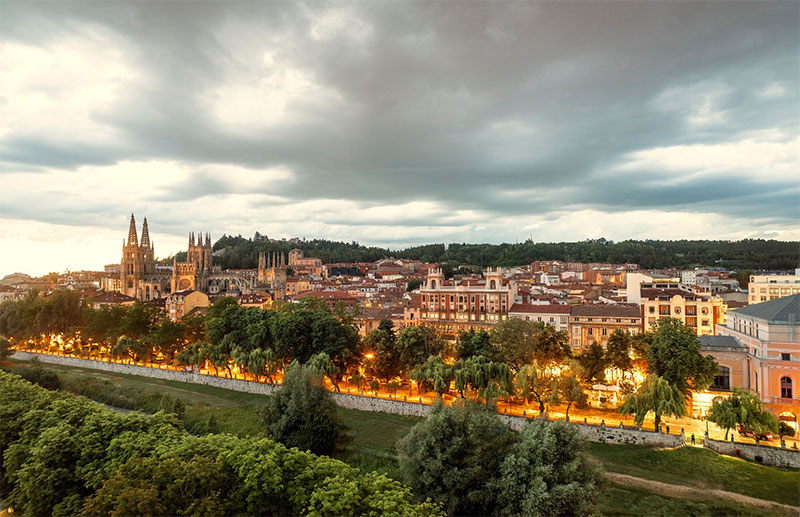
→ Country: Spain
→ Population: 175,234 (2020)
Proyecto Europa (Europe Project)
The Europe Project is an initiative that aims to help young people in the city master the English language and improve their ability to develop a successful personal and professional career. It is a commitment to talent and the future of the city. The council distributes 100 scholarships with all expenses paid to study English in an English-speaking country among the best students in the city. The prizes are distributed equally among all educational centres in Burgos, public and private, located across the city’s neighbourhoods, both humble and wealthy. The young students live together in their destination regardless of their social background, learning English outside of Spain.
Plan Castillo
Burgos is the capital of Castile, land of castles, a region in the centre of Spain. Plan Castillo not only aims to restore the fortress of Burgos, but also to regenerate the neighbouring area and integrate it into the city. The castle of Burgos will become one of the main tourist attractions as well as a recreational area for the residents of the city. Protecting heritage by making it part of the regeneration of the city and attractive to locals and visitors alike is about converting the main places in the city into areas accessible to all on which the fabric of the city itself is built.
Burgos Río
Burgos Río is a city project with great transformative potential. The Arlanzón River runs through the city, from East to West, and articulates city life. The interaction between the river and the city must be planned in the long term, and the flora and fauna of Arlanzón are exceptional and must be protected. Burgos Río intends to act comprehensively, with a long-term view, along the entire river system of the city according to the needs and conditions of each section. After centuries being “humanised” the Arlanzón must recover part of its initial natural appearance. Burgos Río is also an initiative with great potential for promoting the city.
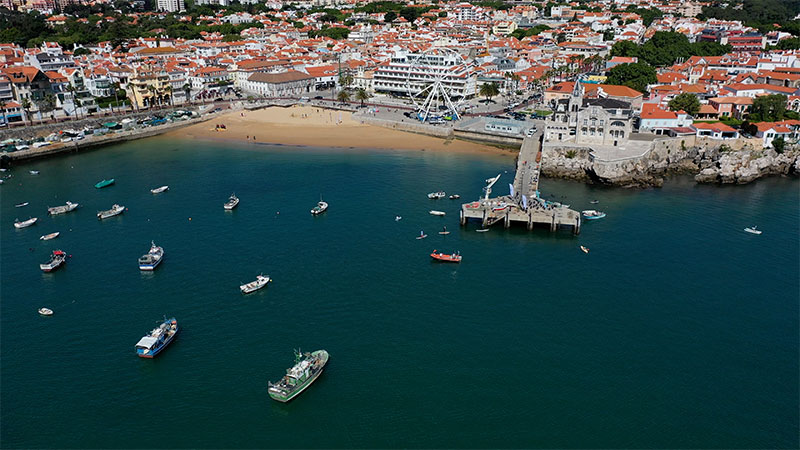
→ Country: Portugal
→ Population: 214,158 (2021)
Vida Cascais: Local Health and Solidarity System (SL3S)
Cascais is committed to building a modern, local welfare state, with health as a strategic area, using the digital revolution as a tool to connect its community. Vida Cascais is a multi-sectoral, innovative and pioneering network which promotes and facilitates the enjoyment of human rights, through access to local health and social solidarity services (SL3S). It is a joint effort between the central state, local government, social partners and civil society, aiming for greater equity and social cohesion. Vida Cascais allows citizens, via the internet, to access healthcare without triage, queues or overloading the National Health Care System. The platform offers more than 45 health services, social support, wellness and active ageing solutions that will grow organically and improve over time.
Youth Participatory Budget
The Youth Participatory Budget (YPB), which has now been running for over five years, was originally initiated by a young student to allow students to voice their opinion on the development of their schools and city. We want to promote among our young citizens the idea that their voice can play an important role in the future of our society and, although they cannot vote yet, that their opinions are valuable and should be heard by our community. Starting at the age of 12, students are actively involved through the school’s participatory budget. Each school has a 10,000 EUR budget for implementing its selected ideas, and they can even propose that their projects are included in the city’s Participatory Budget.
https://op.cascais.pt/orcamento-participativo-jovem
Terras de Cascais – Together by our Roots
Terras de Cascais is a programme that gives new life to natural spaces and promotes organic, urban cultivation. It aims to bring people back together, reconnecting our community with nature and helping them to grow fresh, healthy, organic produce. This project is rooted in the idea that local, seasonal and organic food should be accessible to all. It promotes the use of natural resources to improve social cohesion and to bring about an increased awareness of future development challenges. Terras de Cascais represents a solid brand, where families cultivate their piece of land in a sustainable way. It includes community vines and orchards, and vegetable gardens in schools and day centres. It stands as an inspiring case in the field of policy and programme development, promoting sustainable agricultural production in Portugal and around the world.
https://ambiente.cascais.pt/pt/terrasdecascais/terras-cascais
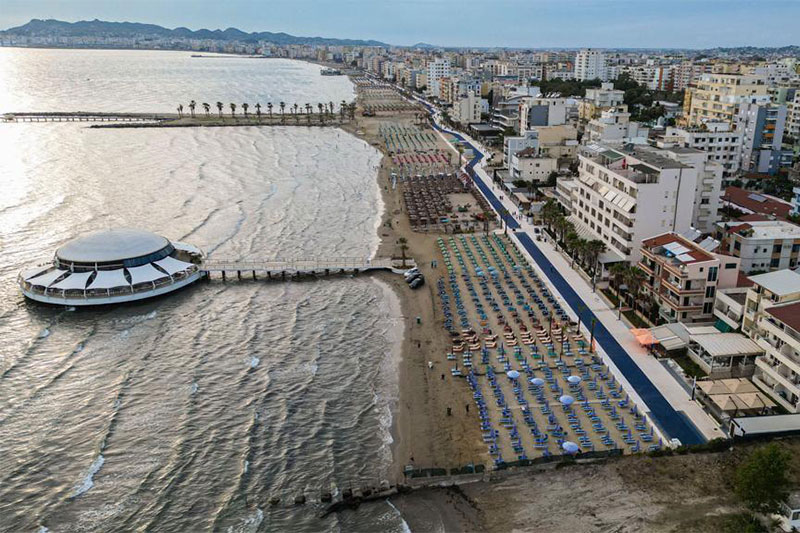
→ Country: Albania
→ Population: 340,000
ECO PARK
ECO PARK is an attractive urban park which has a surface of 15 ha and it is located in
the northern part of the city, near the University “Aleksandër Moisiu”, Durrës. Thanks to
the national waste management master plan, instead of the former waste disposal area, we have an ecological urban park with sports fields available for all. In this ecological park, 5,000 trees were planted and a climbing wall was built, which is one of the highest in the Balkans.
Durrës Beach Promenade
The construction of this beach promenade, which has a length of 3 km, is a strategic investment to improve the road infrastructure in one of the main touristic areas. This new project serves not only local residents living in the beach area, but also domestic and foreign tourists. Now, the beach area has dedicated pedestrian lanes, a running track and bicycle lanes, benches, more green areas and recreational spaces for adults and children, including open-air gyms.
Vala Park (Wave Park)
Vala Park is the newest urban park in Durrës, located at one of the most popular suburbs of the city. This urban park covers a total surface of 8,000 square metres, where you can find multidisciplinary sports fields like volleyball, tennis and table tennis, mini football or basketball. There’s an open-air gym as well as spaces for relaxing in greenery with benches, a
bike lane and a running track. The main objective of this project is the revitalisation of social and cultural life in the city through the transformation of the recreational infrastructure to encourage community spirit and social interaction, which also increases access to green living areas for citizens.
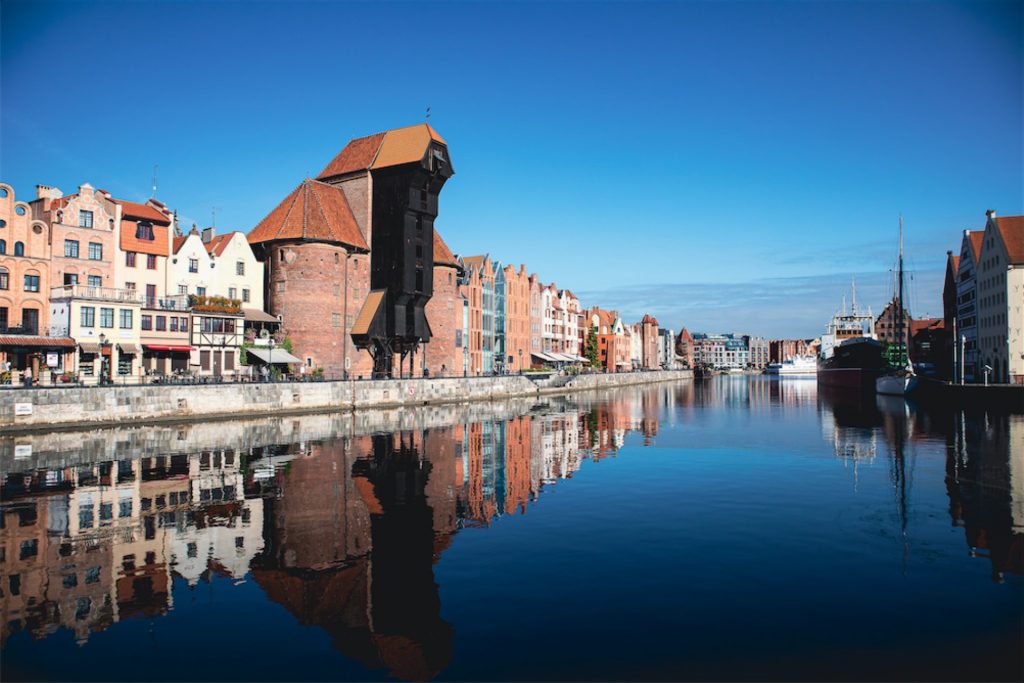
→ Country: Poland
→ Population: 582,205 (2017)
Solidarity Every Day
Solidarity Every Day is a programme and space launched in 2017, open to all those who work for human rights, equal treatment, ecology, social animation, and social inclusion. Its goal is to build an open, non-exclusive society by offering a place to co-work and implement civic initiatives, such as “Hi!” – a cyclical, social project for new residents of Gdańsk (mainly migrants and refugees). It takes the form of a series of meetings, workshops, discussions, walks, and study visits to familiarise new residents of Gdańsk with the city’s history, culture, and life, the organisations, institutions, and people who create it. The project is also an opportunity to practise the Polish language, meet new people and implement initiatives.
Programme of Cooperation of the City of Gdansk with the Civil Society Organisations
23 years ago, the City of Gdańsk introduced its annual Programme of Cooperation of the City with Non-Governmental Organisations into democratic practice as the first public policy in Gdańsk fully co-created with stakeholders. The programme defines principles of partnerships between the city and NGOs, and joint initiatives for local communities, as well as procedures for co-creating legal acts with organisations. The practical dimension of the collaboration covers four areas of joint action: co-creation of public policies, implementation of public tasks, support for the activities of organisations and residents, and mutual communication and promotion.
Gdansk NGO Cooperation Programme for 2024
Youth for Democracy – Civic Lessons
Civic Lessons, run throughout the school year, aim to educate children and youth for active civic life. 24 innovative lesson scenarios at 4 educational levels (from preschool to secondary school) were created by teachers from the Creative Pedagogy network for new ideas in education. Scenarios are published in the Teacher’s Manual and in a digital version online, so teachers have access to them at all times. Visits to the City Council, municipal institutions, and meetings with local government officials, city councillors, and activists supplement Civic Lessons in the classroom. Every month the Mayor of the City of Gdańsk runs an open session of Q&As in one of the secondary schools.
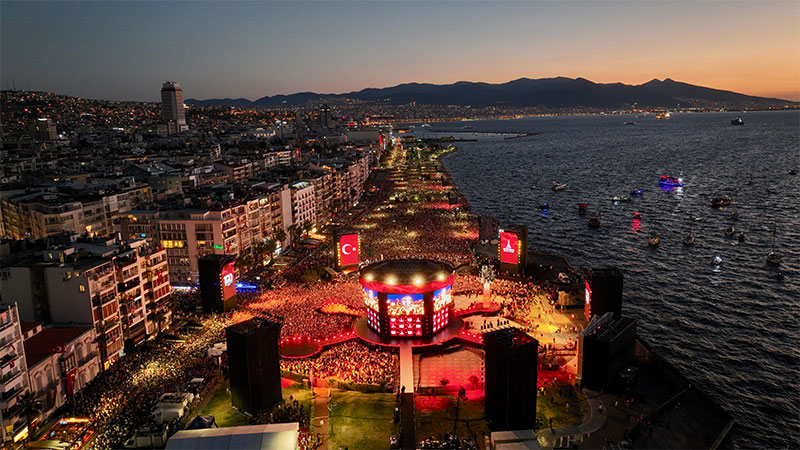
→ Country: Turkey
→ Population: 4.367 million (2019)
Congress for Future’s Economy
The Congress for Future’s Economy, held in Izmir in March 2023, marked a hundred-year milestone since the First Economic Congress, aiming to redefine economic paradigms. This inclusive initiative involved sectoral workshops and expert meetings focused on social harmony, ecology, historical perspective, and technological innovation. The main congress gathered over 500 delegates, including notable international figures, and resulted in a comprehensive declaration with 61 principles and 303 decisions. Its primary goal is to lay the groundwork for future economic strategies, fostering collaboration on a local and global scale. This bottom-up approach offers locally informed solutions to contemporary economic and ecological challenges.
https://iktisatkongresi.org/en
Youth Municipality
The Izmir Youth Municipality, established in April 2023, engages young people aged 18-30 in Izmir to actively participate in local governance. A diverse team of 210 individuals, comprising Full Members, Alternate Members, and Volunteers, collaborates on 11 different commissions to address city issues. All Izmir’s youth can propose projects, fostering youth involvement in municipal policies. The commissions generate ideas and projects, forwarded to the Izmir Metropolitan Municipality for implementation. The Youth Municipality promotes democratic participation, leadership development, and social connections among young people. Elections are held every two years to ensure a continuous influx of innovative ideas and fresh perspectives.
www.gencizmir.com/en/Anasayfa/Index
WeIzmir MovementThe WeIzmir Movement aims to foster economic, social, ecological, and cultural development in Izmir by strengthening citizen participation in local governance. It comprises Neighborhood Councils for advisory decisions, online Participatory Budgeting, and Participatory Decision Making through an online portal. Additionally, it encourages community action in selected Living Parks with support for citizen-led events. This initiative seeks to empower Izmir residents, enhance transparency, and create inclusive, accountable, and responsive local governance, ultimately shaping a more vibrant and prosperous city for all.
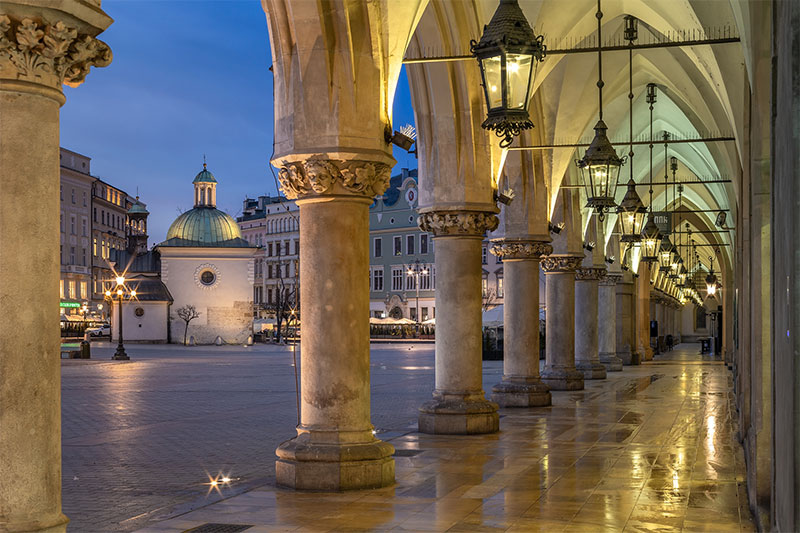
→ Country: Poland
→ Population: 807,600
Participatory Budget (Budżet Obywatelski)
One of the most successful projects in Kraków over the past five years, that has significantly enhanced local democracy, is the Participatory Budget (Budżet Obywatelski). This initiative allows residents to directly influence the allocation of a portion of the city’s budget by proposing and voting on various projects aimed at improving their community. These proposals are reviewed for feasibility and the viable ones are put to a public vote. The projects with the most votes receive funding and are implemented by the city. In this way, residents have a direct say in municipal decision-making, empowering them to shape their environment. The process is transparent, with clear guidelines and public voting, fostering trust between citizens and the local government. This project encourages community involvement and collaboration, as residents discuss and support various projects. At the same time, it educates citizens about municipal budgeting and governance, fostering a more informed and engaged populace. This project is a prime example of how local democracy can be strengthened through direct citizen involvement.
Multicultural Centre Kraków
This Centre is an innovative project co-financed by the City of Kraków, operating under the Open Kraków programme since 2021. The Multicultural Centre is a meeting place for representatives of different cultures. It is a space that promotes dialogue, inclusion, integration, and the creation of a common community by organising various educational, cultural, and charity events. The Multicultural Centre works to: introduce residents to the idea of multiculturalism and present different cultures through selected cultural practices; activate foreigners and representatives of national and ethnic minorities to participate in social initiatives; inform about projects implemented or supported by the Kraków commune; and, build a community based on intercultural cooperation with strong support from a group of volunteers. Promoting and strengthening multiculturalism is the main goal of the Multicultural Centre. These activities are based on respect and tolerance for differences and getting rid of prejudices and stereotypes.
Civic Centre
As part of the Civic Centre, both non-governmental organisations and Kraków’s residents can take advantage of a number of activities such as seminars, training, consulting, working groups, coaching, mentoring, a local database, a knowledge base, volunteering mediation, study visits, and various events. All this is done to strengthen the competences, content, and organisation of entities and people who want to act for the benefit of Kraków and its residents. The activities are both supportive for already experienced entities and incubating for those who, apart from an idea and willingness, do not have the tools to implement initiatives. The Civic Centre: creates a generally accessible, friendly space for social and civic activities; provides constant, free educational support to people involved in social activities, including community leaders and representatives of informal groups; integrates the non-governmental organisation ecosystem and develops intersectoral cooperation; supports the social involvement and civic activities of Kraków residents; and, promotes volunteering and further development of effective tools for engaging residents in the activities of social organisations.
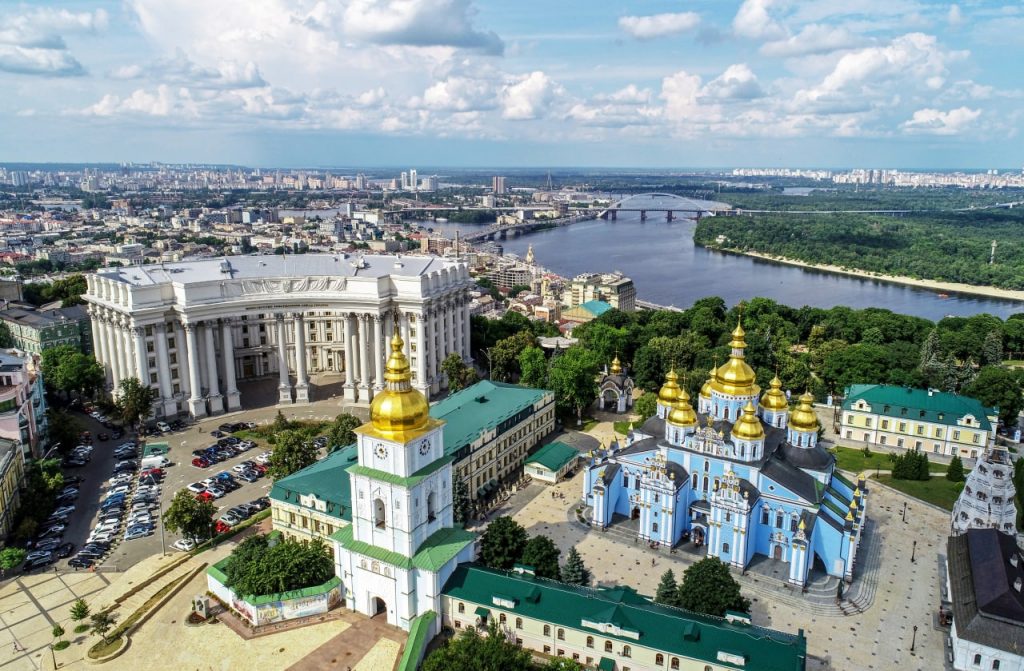
→ Country: Ukraine
→ Population: 2.884 million (2017)
Vcentri Hub
The Vcentri Hub is the first network of municipal open public spaces in Ukraine. This Hub simplifies communication between the municipality and citizens, establishing a constructive dialogue which enables them to work together to make Kyiv better. The Vcentri Hubs are equipped with all the necessary equipment for various events: mobile furniture, strong Wi-Fi, screen and projector, coworking room, children’s room, and a meeting room. The Vcentri hubs are inclusive and accessible to all citizens free of charge. The Hubs host many different events: NGO meetings, public consultations on urban development, educational activities for children, workshops and training, and much more.
https://vcentri.com/vcentri-hub/
Online Platform
vcentri.com is an e-platform for NGOs, providing a convenient tool for interaction between city authorities and NGOs. After registering once on the portal, NGOs can use the services provided by the city using their smartphones. The platform provides an opportunity to: book Vcentri Hubs for events free of charge, in one click; initiate public consultations on important issues; apply for participation in the city’s grant programme; find partners for joint projects; announce their events; and, receive a monthly news digest from the city authorities.
https://vcentri.com/reestr-igs/
Kyiv Digital
Kyiv Digital is a user-friendly mobile app for Kyiv’s residents that brings together all city services for citizens on their smartphones. Kyiv residents call this app “Kyiv in your pocket”. Online surveys are an important e-democracy tool included in the app, which help city authorities communicate better with citizens and take their opinions into account for urban policy-making. Surveys provide an opportunity to get feedback from citizens on a particular issue of city development and analyse the current needs of citizens. This procedure is completely transparent and based on data analysis. More than 3,200,000 adult citizens are officially registered in Kyiv, with 2,800,000 residents registered on the Kyiv Digital app – which is almost the entire adult population of the capital!
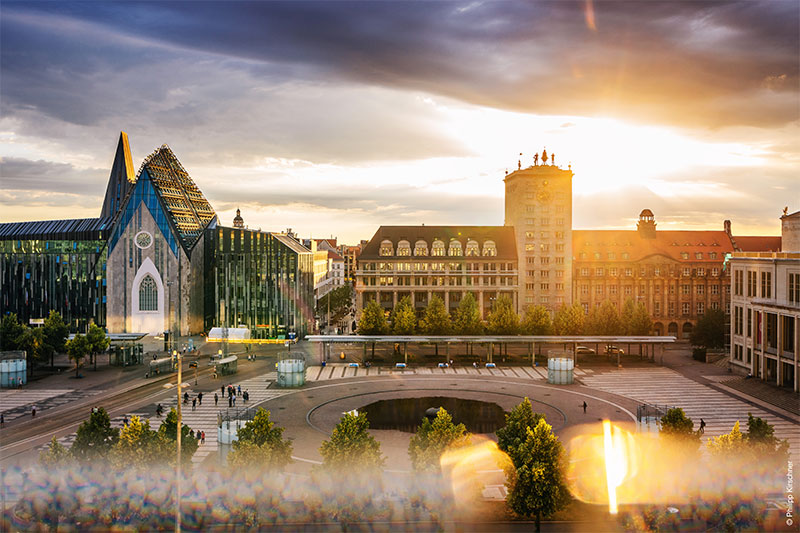
Image: photograph by Philipp Kirschner
→ Country: Germany
→ Population: 587,857 (2019)
Year of Democracy: You. We. Leipzig
In 2018, Leipzig initiated a Year of Democracy to raise awareness about existing democratic processes, to search for new ideas for a harmonious society, and to foster local democratic engagement. Besides a large information campaign and public discussions, 28 projects from diverse fields including sports, culture, and social issues, were supported in order to foster democratic interaction. The year marked the beginning of different processes to reach out to the people of Leipzig, especially on the outskirts, to give a stage to democracy, and to motivate as many as possible to actively take part in shaping our city.
Youth Parliament
The Leipzig Youth Parliament is a representative body that provides a platform for young individuals to actively participate in local decision-making processes. It serves as a democratic institution designed to engage youth (age 14-21) in shaping policies and initiatives that directly affect them and their community. Initiated by a group of young people and supported by a civil society organisation in 2011, after years of planning and negotiations the first official elections were held in 2015. The Leipzig Youth Parliament consists of 20 young representatives, directly elected by the young citizens of Leipzig. By being present in all working committees and groups, young people can take direct action in local politics.
https://jugendparlament.leipzig.de/
Neighbourhood Management: A Colourful Mockau Summer
In Mockau, our neighbourhood management strategy pilots new methods to foster participation and creative processes on a very low budget in an area with many challenges. It aims to foster integration of refugees and migrants as well as engaging long-term inhabitants of the district to enhance social cohesion. The Colourful Mockau Summer festival was co-created as a cross-generational and cross-cultural meeting point to counteract the lack of local cultural offers. After a difficult start, the event is now in its 5th year and cherished by the whole district. It has led to improved cooperation and better structures in the neighbourhood.
www.leipzig.de/bauen-und-wohnen/foerdergebiete/mockau/intigra-realisierte-projekte-in-mockau
→ Country: Austria
→ Population: 203,000 (2017)
→ https://www.linztourismus.at/en
Innovationshauptplatz
The Innovationshauptplatz was opened in 2019 and has since placed a strong focus on citizen participation. Through projects and the open participation platform, the citizens of Linz have the opportunity to contribute and voice their opinions on topics such as the economy and innovation, climate protection, and EU matters, as well as the municipal administration. It is now more important than ever to involve citizens, giving them a voice in their city’s administration. With the platform, citizens can engage in productive dialogues with the city administration, opening avenues for new ideas and suggestions.
Create Your City
Covid, war, the climate crisis – the challenges facing today’s youth are undeniably daunting, and the future has never seemed so uncertain. Many of them are gripped by fear and dystopian visions. “Create Your City” aims to inspire courage and foster a more positive outlook. In collaboration with the Ministry for Curiosity and Future Studies, we pose the question for one workshop morning: “What do you like about the City of Linz, and what would you like to change?” This project is all about motivating young people aged 12 to 16 to actively participate in societal life and shape their city. We place particular emphasis on those who are on the cusp of becoming eligible voters.
Innovation Tour
For a week, the Innovationshauptplatz is embarking on a tour through the districts of Linz. During this tour, interactive stations featuring new technologies, coding workshops, 3D printers, virtual reality glasses, climate topics, plastic fabrication, social innovation, and much more can be visited free-of-charge by people of all ages, from young to old with the whole family. The Innovation Tour aims to provide knowledge transfer on these topics, particularly to neighborhoods that do not typically encounter them on a daily basis. Ideally, children and adolescents may discover career paths they feel drawn based on their experiences of the tour.
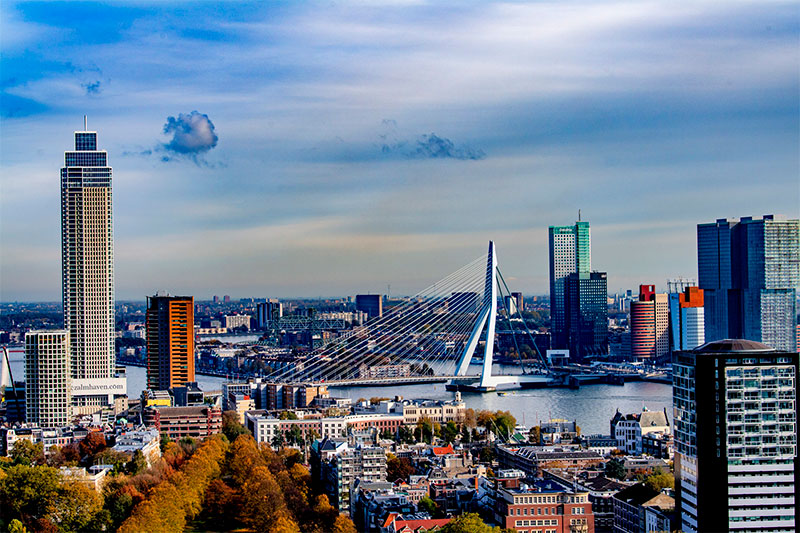
→ Country: Netherlands
→ Population: 670,000
Hyperlocal Democracy
Rotterdam’s hyperlocal democracy empowers 39 Neighbourhood Councils, with 291 council members, to influence decisions and collaborate with City Hall, promoting direct citizen participation. The Neighbourhood Councils have existed since 2022, and each consists of elected members who represent the interests of the neighborhood’s residents. They provide advice on various local topics, such as urban development, safety, infrastructure, and the well-being of residents. Neighbourhood Councils influence municipal decisions by supporting resident initiatives, assessing municipal plans and informing the municipality about the wishes and concerns of each neighbourhood’s residents. The Neighbourhood Councils contribute to strengthening social cohesion and quality of life in the city.
City of Initiatives
Rotterdam places great emphasis on Rotterdammers creating their own solutions to urban issues. Different programmes have proven their success in giving Rotterdammers the opportunity to shape their own city. We encourage residents to make direct improvements to their own living environment. A focus on the local community strengthens neighbourhood safety, livability, and social cohesion. Applications range from playgrounds and neighbourhood festivals to green initiatives, such as urban gardens. With CityLab010, creative minds and entrepreneurs receive financial support to realise innovative ideas. This instrument has led to the realisation of hundreds of initiatives – from sustainable food projects to digital innovation in education.
CityLab010 – Home; Opzoomer Mee
Citizens’ Assembly on Climate
The Citizens’ Assembly on Climate is a participatory initiative focused on tackling the city’s climate goals: a 55% CO² reduction by 2030 and climate neutrality by 2050. In this assembly, a randomly selected, representative group of residents collaborates on impactful climate solutions. Through learning, deliberation, and expert-guided assessments, participants develop actionable proposals aimed at reducing emissions and fostering a sustainable urban environment. These recommendations are presented to the City Council as advice, enhancing climate policy and strengthening trust and cooperation between the city and its citizens, while harnessing local knowledge and creativity for a greener Rotterdam.
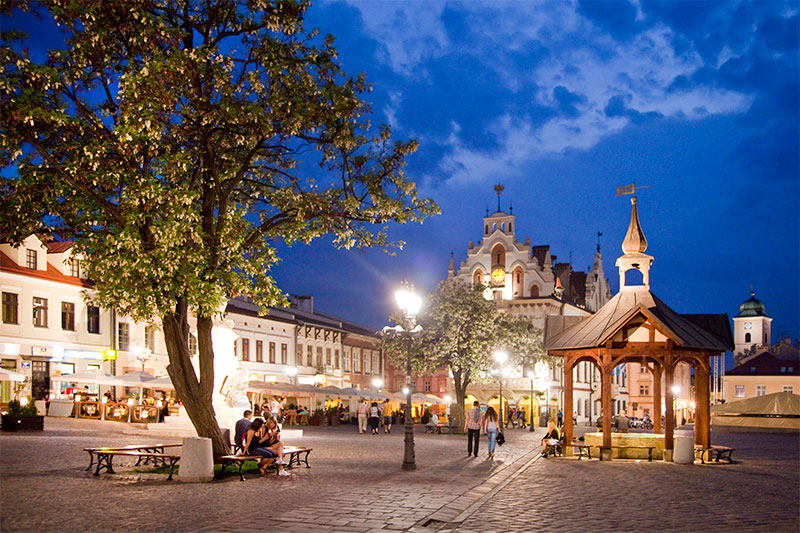
→ Country: Poland
→ Population: 195,871 (2021)
BeeFriendly Project
The BeeFriendly project was created in response to the decline of the wild bee population. The main aim of the project was shaping bee-friendly attitudes among the residents, for example by sensitising them to the presence of bees in our environment and their role, actively supporting bees through education, buying houses for wild pollinators, planting bee-attracting plants, and creating new habitats. Thanks to these simple activities, we can contribute to the growth of the bee population. The project was supported by Visegrad Grant and created by V4 cities – Rzeszów (Poland), Nyiregyhaza (Hungary), Kosice and Stropkov (Slovakia) – with Rzeszów the lead city for the project.
www.facebook.com/beefriendlyrzeszow
We Are the City
The City of Rzeszów, in cooperation with its residents, launched the We Are the City project aimed at engaging the community to submit ideas for micro city innovations. The project promotes the participation of residents in the implementation of solutions in areas affecting quality of life in the city, creating more modern, friendly and green urban spaces for residents of the city. The submitted ideas respond to global challenges, with the main goal of the project being to also involve citizens in the implementation of their ideas.
https://www.visitrzeszow.pl/en
Rzeszów’s Incubator of Culture
Rzeszów’s Incubator of Culture, Rzeszowski Inkubator Kultury, RIK, is a long-term project implemented by Estrada Rzeszowska (cultural institution). Its mission is to support grassroots cultural, social and animation-based initiatives and activities in Rzeszów and the region. This is done by organising meetings, training sessions, workshops, discussions, artistic events and partnerships, which are intended to influence the development of future creators and consumers of culture. For this purpose, RIK offers its own activities as well as training and workshop programmes, both for individuals and groups seeking to expand their cultural knowledge and skills.
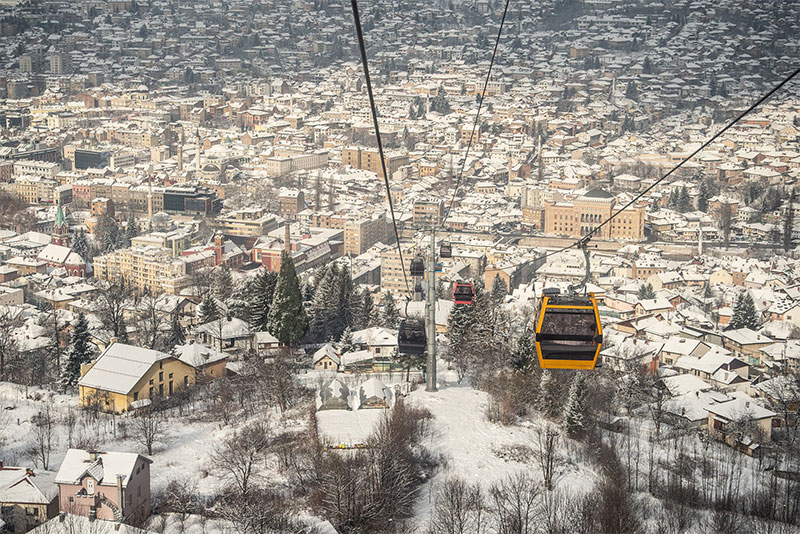
→ Country: Bosnia and Herzegovina
→ Population: 275,524 (2013)
National Minorities
The National Minorities project seeks to strengthen the capacities and increase the visibility of Savajevo’s various communities of national minorities. Language courses in the national minorities’ languages are offered, and newspapers are also published in these languages. In addition, the cuisine of these minority communities is promoted and their culture celebrated through various cultural events.
https://www.facebook.com/nacionalnemanjineusarajevu
The ACCESS Project – Smart Sarajevo
The ACCESS project strengthens access to rights for women through engagement with the city’s authorities. The project includes workshops, conferences and open days. The goal of the project is to empower women and to make it easier for women to access their rights through the cooperation of local authorities, civil society and citizens. Mutual understanding and cooperation between local authorities and the community as a whole will be strengthened through project activities.
Centre for Healthy Ageing
Sarajevo focuses its attention on senior citizens through its Centres for Healthy Ageing. These Centers offer different daily activities for senior citizens, such as exercise classes, courses on various skills and subjects, social gatherings, day trips and other activities which improve their quality of life.
https://generacija.ba/
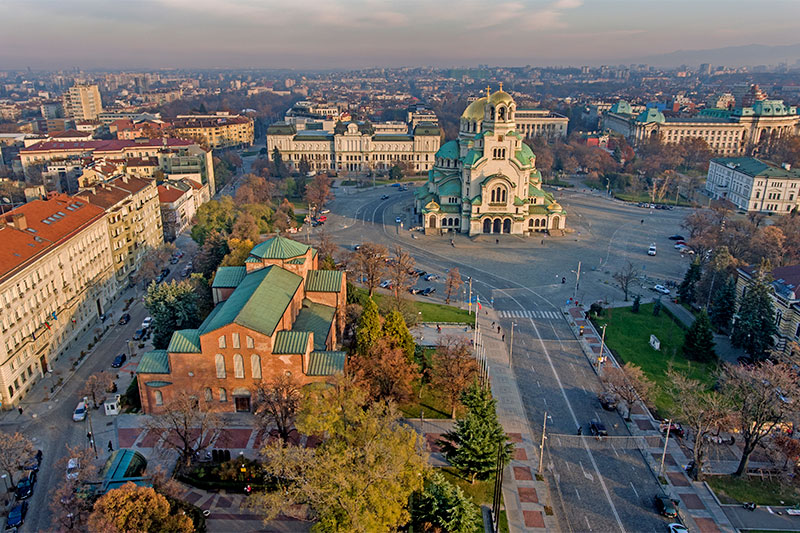
→ Country: Bulgaria
→ Population: 1.222 million (2021)
Citizen Budget Initiative
This initiative is a participatory budgeting programme developed by Sofia Municipality to engage residents in local governance by allowing them to propose and vote on community projects. Launched in 2024, this initiative allocates 5.3 million leva for projects that enhance urban spaces, culture, education, mobility, environmental sustainability, and public safety within Sofia. Citizens submit project proposals, which are then evaluated and selected based on public voting, creating a transparent and inclusive decision-making process.
https://reshava.sofia.bg/?locale=bg
Sofia Programme Europe
Initiated by Sofia Municipal Council, this funding programme is aimed at fostering democratic engagement and the development of civil society organisations within the context of Bulgaria’s EU membership. Established in 2008 and revised multiple times, the programme focuses on supporting local initiatives that align with EU values, foster collaboration between citizens and local authorities, and promote public awareness on key community issues. Annually, the programme allocates 1 million leva, with a maximum funding of 25,000 leva per project, to NGOs and civil society groups for impactful projects within Sofia Municipality.
The Toplocentrala Project
This project is a joint initiative between a group of artists from the independent art scene and Sofia Municipality, which was launched in 2014 with the main idea to transform the former heat plant of the National Palace of Culture, built in 1981, into a modern, European Centre for Contemporary Arts.
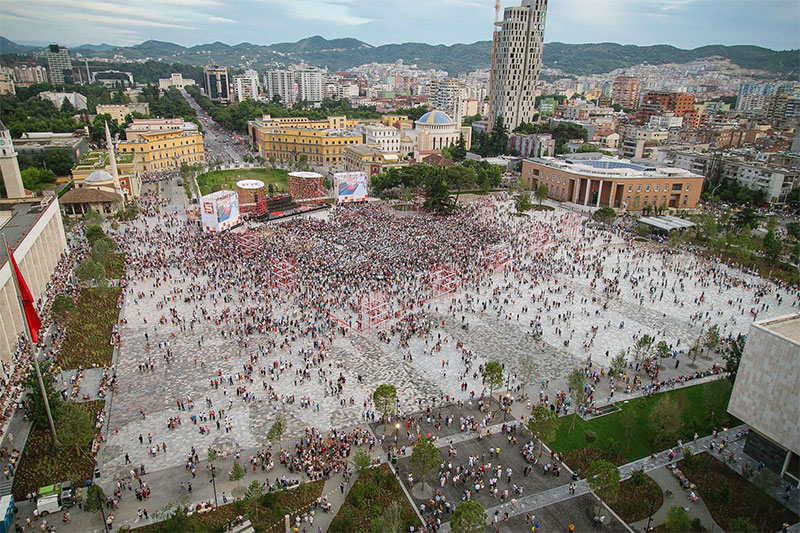
→ Country: Albania
→ Population: 557,422 (2011)
Pyramid of Tirana
The Pyramid of Tirana has undergone a remarkable transformation, evolving from a monument of the troubled past to an iconic, sustainable, innovative and smart building. This project is a bold and ambitious undertaking by the Municipality of Tirana to transform an old building into a self-sustaining entity within Tirana’s urban environment. The overall goal is to repair, connect, and activate by preserving the iconic structure of the Pyramid and redefining it for a new purpose: a facility for technology, creative industries, education, arts and culture. The Pyramid of Tirana is an example of how innovation can be used to transform the construction sector.
https://piramida.edu.al/
Tirana Ime
Tirana Ime embodies the principles of citizen participation, transparency, and technological innovation, which are essential for a democratic society. By providing residents, businesses, and visitors with an intelligent comprehensive user-friendly platform to explore and engage with the city, the project aims to empower citizens, foster transparency in governance, and enhance the quality of urban life. The application’s continuous improvement, with the launch of My Tirana 2.0 demonstrates a commitment to innovation and meeting the evolving requirements of the city’s residents.
https://play.google.com/store/apps/details?id=ch.arkit.TiranaMobility&hl=en&gl=US&pli=1
FolEJA
FolEja is an initiative that addresses the need for multidimensional spaces designed by and for young people. The project brings together young people from various professional backgrounds with a shared goal of revitalising urban spaces. Through FolEja, young people take the lead in transforming urban spaces, fostering socio-cultural diversity, education, entertainment, and contributing to urban revitalization. This initiative has the potential to inspire and engage all youth, creating a ripple effect of youth-led urban development.
https://fole.com.al/
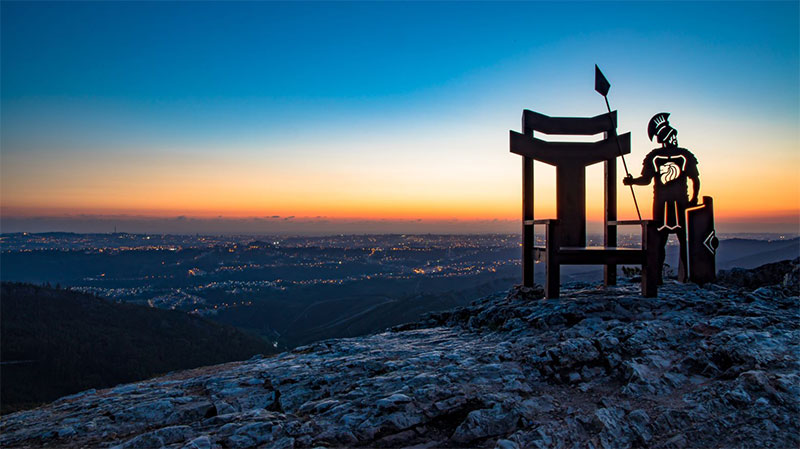
→ Country: Portugal
→ Population: 103,084 (2022)
Youth Participatory Budget
The Youth Participatory Budgeting (YPB) of Valongo is a tool used as a participatory instrument that allows young people between the ages of 6 and 35 to participate by presenting ideas and projects that make a difference in their community. It allows us to support participants in discovering and working on critical thinking, free will, decision making and participation. It also allows the participants to understand the decision-making mechanisms of a democratic society, and even to work on very important tools for their future lives, such as the ability to speak in public. In Valongo, the YPB is already in its 10th edition, with a 100% rate of realising projects and a high degree of satisfaction from the citizens.
More Enlightened Community, More Participatory Community
This project aims to promote a participatory culture, encouraging citizens to get involved in community life and local politics. Through implementing this project, we seek to increase citizens’ trust in their elected representatives and other public institutions. We do this through promoting the accountability, transparency and accuracy of information available to citizens. In this way, we manage to create the basis for healthy participation in the decision-making processes that we want to make more open and transparent. We work to strengthen the sense of mutual responsibility between citizens, elected representatives and communities, so that everyone knows their duties, rights and the active role they can play, and how they can contribute to building the community they want to be part of.
https://www.facebook.com/sedlvalongo/
Valongo 4.0 – The Future Built by Valongo’s Children and Young People
This participatory process allows the children and young people of Valongo to participate in the second revision of the Municipal Master Plan of Valongo, which is a fundamental legal instrument in land management that defines the strategic framework for territorial development of the municipality and serves as a reference for the preparation of various municipal plans. In this way, children and young people have been able to participate in the reflection on the future of the territory they inhabit, including their voice in a broad participatory and multigenerational dynamic.
https://www.cm-valongo.pt/participar/processo-participativo-pdmv/valongo-4-0
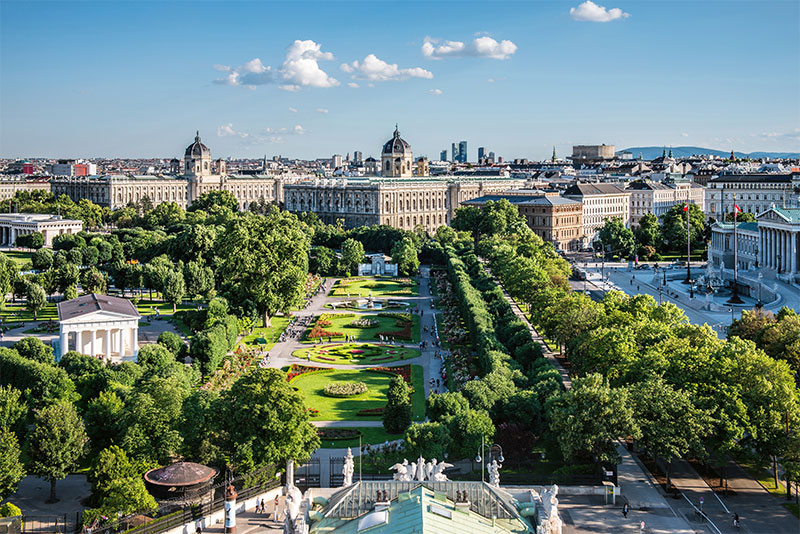
→ Country: Austria
→ Population: 1.982 million (2022)
Vienna Climate Team
Wiener Klimateam (Vienna Climate Team) is an innovative participation project implementing climate protection projects run, suggested, and decided upon by citizens. In 2022, three Viennese municipal districts started implementing the projects with a budget of 20 EUR per resident as a pilot scheme. The project followed a one-year participation cycle with six phases implementing target-group specific and cross-media participation elements to activate as many diverse population groups as possible. Local and outreach activation occurred in public spaces and neighbourhoods, focusing on the hard-to-reach target groups. 1,100 ideas were submitted and co-creation workshops were held to develop project outlines. Finally, a representative jury of citizens selected 19 projects. Thus, Wiener Klimateam broke new ground in participation and activation as well as governance and cooperation.
https://klimateam.wien.gv.at/ueber-das-klimateam
Participatory Children and Youth Million
The Participatory Children and Youth Million is one of the 193 measures from the Children and Youth Strategy in which children and young people can contribute ideas for projects via an online platform. These ideas are implemented with funds of one million euros from the city budget. In the first pilot year, around 250 ideas were submitted and reviewed. Then they were discussed in joint co-creation workshops with the young idea-submitters, revised, and shaped into concretely implementable projects. Subsequently, Vienna’s children and young people had the opportunity to vote on these projects via an online voting system. This resulted in 20 winning projects confirmed by the Children’s and Youth Parliament which will now be implemented by the responsible departments of the City of Vienna, again with the participation of the idea submitters.
https://junges.wien.gv.at/projekte/
Culture Lab Municipal Housing
Kulturlabor Gemeindebau (Culture Lab Municipal Housing) promotes a participation-oriented, interdisciplinary cultural practice in Vienna’s municipal buildings. The formats of the Culture Lab Municipal Housing are intended to strengthen the creative activity of the residents, with art projects developed in dialogue between residents and artists. This method of production is intended to encourage residents to become actively creative in the cultural space of municipal housing. In the shared experience of the different presentation formats of the art projects, the (semi-public) cultural space of the municipal buildings will be opened up and made tangible not only for residents of the municipal buildings, but also for all interested people in Vienna.
https://wohnpartner-wien.at/zusammenleben/kulturlabor-gemeindebau
Related News
Contact
For more information on the European City Network, please contact: Laura Thomas, lt@innovationinpolitics.eu.
